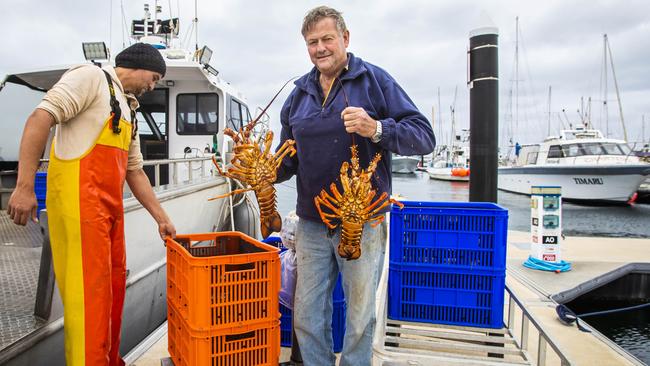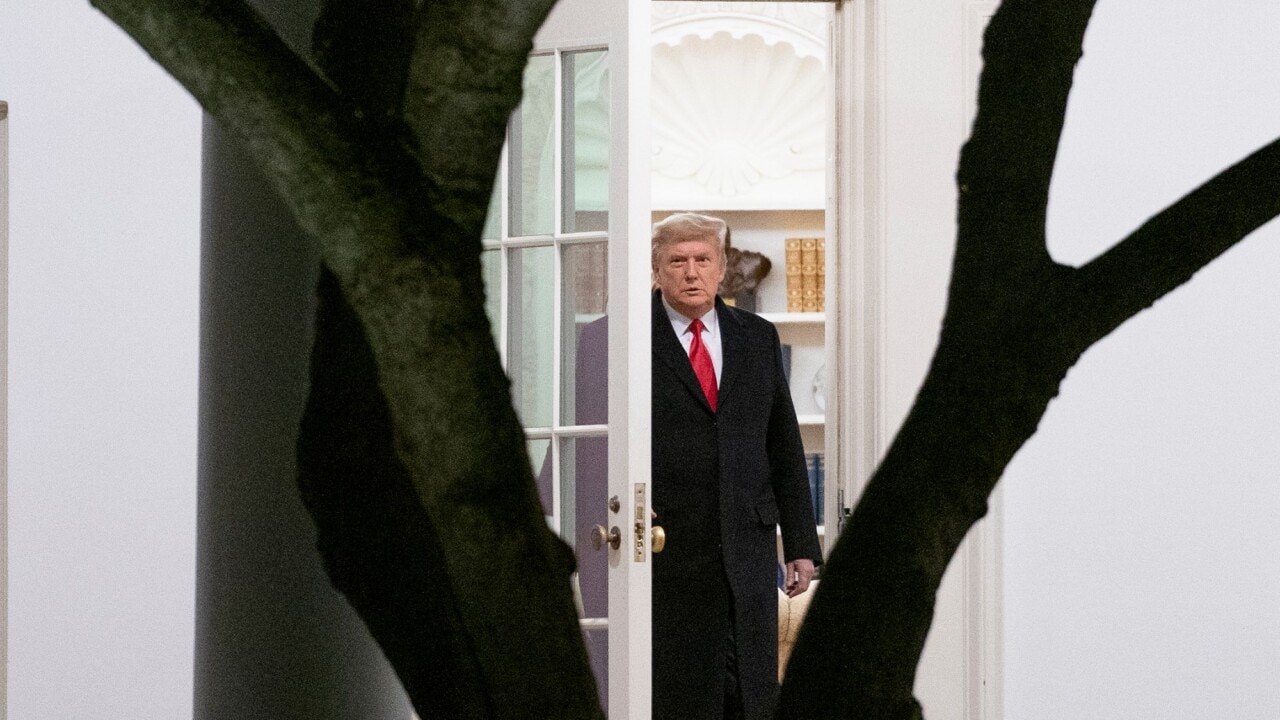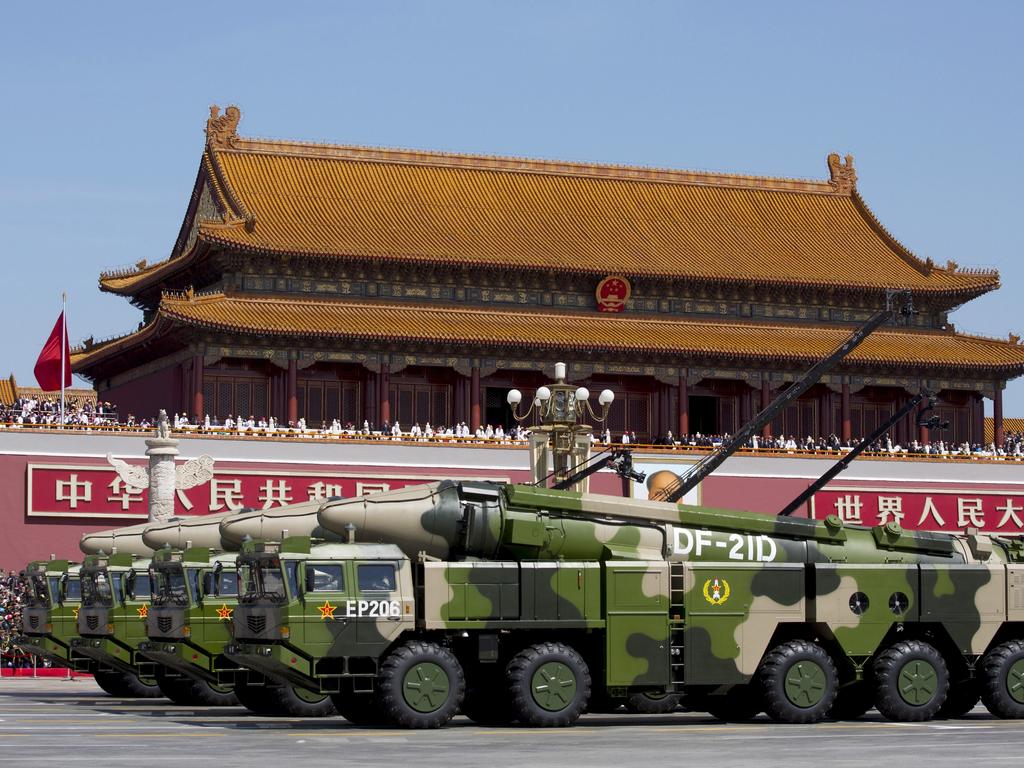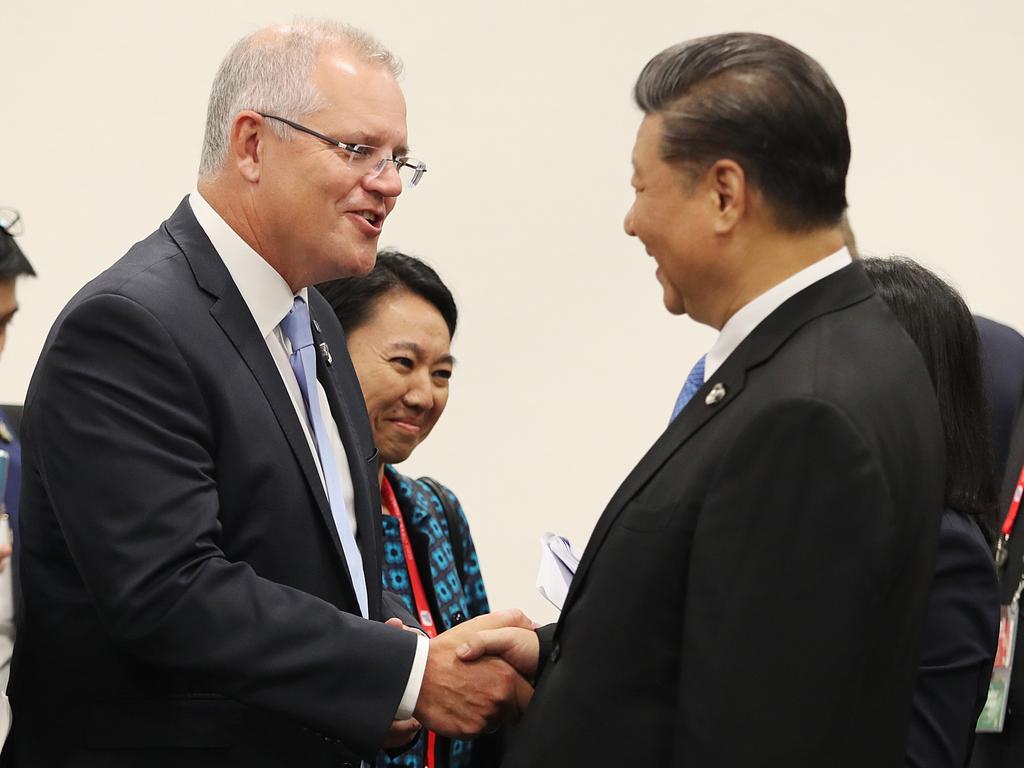Growing human cost of China trade standoff
The Victorian town of Portland’s timber and crayfish industries have become collateral damage in the trade row with China.

Portland is used to living on tenterhooks, but not like this.
The Alcoa aluminium smelter that sits on the rugged coastline at Point Danger on the town’s outskirts in Victoria’s far west is perennially under threat of closure due to profitability concerns and high carbon emissions.
A $77m federal government support package in December won’t be enough to secure its long-term future, leaving the state’s Treasurer, Tim Pallas, under pressure to offer a lifeline.
Now two other industries critical to the town’s survival — timber and crayfish — have ground to a virtual halt, collateral damage in the ongoing trade standoff between China and Australia.
Little wonder that the 11,000 residents of Portland are on edge, and becoming edgier still as each week passes without any sign of a diplomatic resolution to the China impasse.
Timber exports that flow through the Port of Portland from the so-called “Green Triangle” that stretches from along Victoria’s border into South Australia’s far east are worth more than half a billion dollars a year.
More than 150 direct jobs in the industry have already been lost and there are fears the numbers could reach a thousand or more in the first half of this year if the sanctions continue.
The local crayfish industry has been forced to sell its catch domestically for much cheaper prices — often less than half — and the Australian market is likely to be far less hungry for the product after the festive season.
Portland is an exemplar of the human cost of Australia’s deteriorating trade relationship with China. Peter Price, 64, runs a family fishing business, and his two sons operate the trawlers out of the town’s port.
Justin, who has been in the business now for 20 of its 35 years, catches the crays. “At this time in a normal year with the Chinese as a customer we’d be getting $80 to $85 a kilo, but right now we are looking at $33 to $55 a kilo,” Mr Price told The Australian.
“Before it was a case of whatever we could catch we could sell, up to our quota,” he said. “But we can’t catch more to make up for the lower prices.”
Mr Price said the Chinese importers were wanting to buy, but the issue was now in the hands of the Chinese government.
“We are a family business, and we just need this to be sorted because it is impacting on us. I’d like the governments to sort this out quick smart. All of us want that,” he said.
Portland Mayor Anita Rank said her town was resilient, but when the timber ban came into place on November 12, the effect was instantaneous.
“Ships just stopped loading — it all just stopped and the impacts were felt straight away,” Ms Rank told The Australian.
“The timing was tough. It was leading into Christmas and people were losing their jobs and not knowing how they’d pay the mortgage. That is extremely stressful for people.”

China has now banned timber exports from all Australian states, an industry valued at $3.5bn a year, after it claimed it discovered a pest known as bark beetle in one of the shipments.
Since slapping an 80 per cent tariff on Australian barley in May, China has also imposed restrictions on coal, copper ore, sugar, wine and crayfish, as well as the blanket timber ban.
Agriculture Minister David Littleproud and newly minted trade minister Dan Tehan, the federal member for Wannan in which Portland is situated, are looking for a diplomatic resolution. So far with little success.
“The department has formally written to Chinese authorities on two occasions seeking further information about detections of bark beetle and proposing a range of measures to give assurance that Australian log exports meet Chinese biosecurity requirements,” Mr Littleproud said.
“To date there has been no response from Chinese authorities.
“Australia continues to seek open and constructive dialogue with China to help resolve any trade issues,” he added.
In the meantime, the effects are all too real on the ground.
Ms Rank said some timber workers were already taking shifts at the local abattoir.
“We have only 10,000 in the town and 20,000 across the shire. We are wanting to attract people, not lose people,” she said.
Committee for Portland chair Steve Garner said retailers were also struggling as the town’s main industry dries up. “We’ve written to the Prime Minister and said, ‘Hey, our people are getting fairly desperate and we want you to come to some resolution with China for our sake’,” he said.
Businesses along Portland’s main drag – Percy Street – told The Australian that the ongoing trade tensions with China had trickled down to them.
Print and newsagency owner Michael Davis said he noticed a drop in the number of signs and stationery he printed for forestry transport companies.
“It’s obviously because the volumes in the logs have dropped and the (wood) chips that are going out, and I understand most of that is to do with China cutting back or playing funny buggers with Australia,” the 71 year-old lifetime local said.
“It’s not just the guys on the plantations. It trickles down to everyone,” he said.
“I live right on the water so I can see the amount of ships going out with logs and it’s not as busy as what it was six months ago.”
Seaview Real Estate director Allan Barrett said if employment opportunities continued to dry up, he expected interest in Portland property to take a hit too.
“If people haven’t got jobs or have been out of work, then either they need to sell or leave the area generally,” the 40-year-old said.

For Port of Portland chief executive Greg Tremewen, 70 per cent of all that is shipped out of his port is timber products.
“This needs to be fixed and fixed urgently. It has gone beyond the log companies having an issue; it’s now a government to government issue, and it can only be fixed at that level,” Mr Tremewen said.
Ross Hampton from peak timber industry lobby group the Australian Forest Products Association said the industry had responded as far as it practically could on the bark beetle issue, and the ball was now in China’s court.
“We’ve accepted the advice from China on face value that they found bark beetle. So we’ve united as an industry and created a two-tier sanitary process where all timber exported is now fumigated twice,” Mr Hampton said.
“We let the Chinese know a month ago that we have been doing that, but so far there has been no response.”
He said the nature of harvesting plantation timber for woodchips means a resolution to the issue can’t drag on. The pulp wood stripped from the growing trees for chips must be taken regularly, or the whole cycle of planting and harvesting won’t work.
“It will get very, very difficult in coming months if nothing changes, but at the moment we have no sense of when this will be resolved,” Mr Hampton said.
He said the time was ripe for a move to greater self-reliance. “We export $3.5bn a year in forest products and then import $5.5bn a year,” he said.
Ms Rank said she knows the people of Portland. “The town is resilient. We are an important contributor to the state’s economy through the industries we have down here, so it is critical that we make the most of our opportunities.
“We just need some stability. This is a prosperous region, but when regions don’t do well, cities and governments suffer.”
More Coverage








To join the conversation, please log in. Don't have an account? Register
Join the conversation, you are commenting as Logout